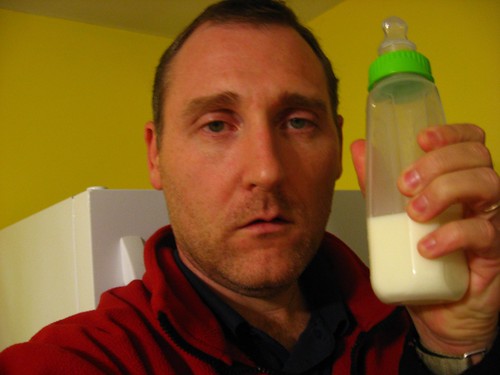Love is a subject on which a great deal has been said and written. Unfortunately, a lot of what is said, read and believed about love is a load of σκύβαλον.
Here are seven lies about love that are all too often taken for truth.

Lie #1: There is only one person you can be happy with: your One True Love
Where do I even start with this? For one thing, “true love” originally meant someone who loved you and was faithful (“true”) to you. That’s it. Hence the lyrics of Scarborough Fair in which the narrator enumerates various tasks which need to be done before the once-true love can be a true love again – all equally impossible. (There is no such thing as “mostly faithful”.) Is there only one person in the world who would be faithful to you? I doubt it.
My Ice-Cream Theory of Relational Compatibility suggests that most people could be happy in a relationship with ‘most anyone. It goes like this: if you get a two-scoop ice-cream, most flavours will go with most other flavours. But some flavours are particularly distinct and only go with a limited number of other flavours. On the other hand, sometimes you get unexpected combinations that, to everyone’s surprise, actually work.
And so with people. Most people could be happy with almost anyone; some people have a smaller pool of possibles to work with; and some pairings work when everyone expects them to fail.

Lie #2: If you’re with your O.T.L., It Just Happens
There isn’t only One Person you can be happy with if you work at it; conversely, there isn’t a single person you could be happy with if you don’t. Relationships, like most living things, need to be tended, and not just by one half of the equation. Michael Bublé has got it all wrong when he sings “You’ll make me work so we can work to work it out… I just haven’t met you yet.” There is no ideal person somewhere out there with whom he (or anyone else) could have a healthy relationship without even trying. Good relationships don’t just happen – they need to be maintained. Both people need to work at it or it’s never going to work.
Lie #3: Love is only found in a sexual relationship
There are many forms of love (for which, alas, English does not even begin to allow) and it is perfectly possible to live a life full of love without being in a sexual relationship. We do single people a disservice in thinking that they must lead a loveless life.
Nor is love to be found only in relationships that exclude all others. A friend can love more than one friend, a parent more than one child, and this is right and good. As Elinor Dashwood says, “after all that is bewitching in the idea of a single and constant attachment, and all that can be said of one’s happiness depending entirely on any particular person, it is not meant – it is not fit – it is not possible that it should be so.” It is too much to demand of any person, regardless of the exclusivity of the relationship, that they take full responsibility for your happiness.

Lie #4: Love is the same as infatuation, and you are helpless before it
Elizabeth Gilbert, author of Eat, Pray, Love admits in her follow-up book, Committed, that it was not until after the failure of her first marriage that she realised that choice came into the matter at all. She had always felt that love was like the flu: if you got it you got it and there was nothing you could do about it. People who stayed together for a lifetime were just lucky they hadn’t fallen in love with anyone else, because of course, they would then have to leave their spouse for the new love.
This reduces love to little more than a hormone-induced feeling, and then puts it in charge of major life decisions. This is never a good idea. In fact, I would go so far as to say that any belief which leads you to think you do not have the ability to choose is an erroneous one.
You’ve probably heard it before, but love is not a feeling, it’s a conscious choice – which is why wedding vows can include the promise to love the other person until death do them part. You can’t promise a feeling, but you can promise that your actions will be in line with your conscious choice to love the other person.

Some people feel that it isn’t really love if it isn’t backed by “the feelings,” but consider another form of love: that of a parent for their infant. A loving parent gets up in the night to feed the baby. They may not be feeling the love at 3 a.m., but they are nonetheless being loving by meeting the baby’s needs. It’s the same with adults: when we promise to love another, we are promising to meet their need for love, whether we feel like it in the moment or not.
Lie #5: Love means never having to say you’re sorry
This lie, popularised by the novel (and subsequent film) Love Story, is a pernicious one. It not-so-subtly suggests that if someone really loves you, they will accept your ill-treatment of them without any apology or attempts to make things right on your part. It is the equally-evil twin of:
Lie #6: Love never says no
This is the lie that makes doormats of people. They let loved ones mistreat them – or mistreat themselves – because they think that if they refuse or rebuke their loved one, they aren’t loving them.

Love – real love – is an unalterable insistence on what is best for the other person. Any parent can tell you that what someone wants, and what is best for them, are not necessarily the same thing. Learning that they can trample on someone with no unpleasant consequences is not good for anyone. (I highly recommend the book Boundaries for those who want to read more.)
Lie #7: Loving yourself is selfish and self-centred
Loving yourself is healthy. Loving only yourself is unhealthy. The oft-quoted command from the Law of Moses and the teachings of Jesus says “love others as you love yourself” – not love others instead of yourself, or love others more than yourself. Love others like you love yourself. There is no expectation that you will (or in fact can) love others when you don’t love yourself.

Are there other lies about love you think should be added to the list?










